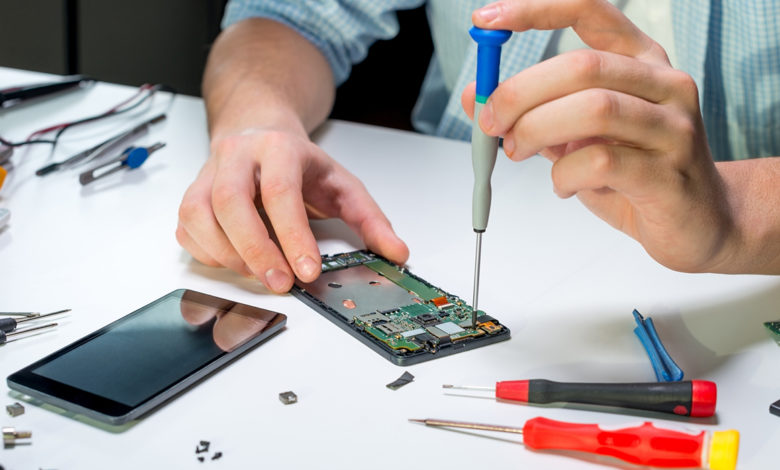
Pennsylvania legislators have turned their focus on right to repair. Long a concern of technology experts, the Pennsylvania legislature is considering efforts to pass legislation regarding a consumer’s right to maintain and fix technology that they purchase.
Repairability Index Act (H.B. 1757)
Pennsylvania House Bill 1757, sponsored by Representative Kristine Howard (D-167), is a unique approach to solving the right to repair issue. H.B. 1757, otherwise known as the Repairability Index Act, hones in on the right to maintain and restore one’s digital electronics.
Rep. Howard’s bill details specific solutions, including requiring original equipment manufacturers to include an average repairability score from 1 (not easily repairable) to 10 (easily repairable) on the equipment so that consumers know the level of difficulty involved in repairing it. The average repairability score would be determined based on a set of criteria, including the accessibility of needed documents, how comfortably one can take apart the product, and by comparing the price of replacement parts versus getting new equipment altogether. Original manufacturers must provide this score ninety days before selling a product. The Repairability Index Act also discusses putting QR codes on equipment that link to detailed instructions on repairing the technology.
Once passed, the Repairability Index Act will take effect 180 days later. However, this isn’t the only piece of legislation being considered on right to repair in the Pennsylvania House.
Digital Fair Repair Act (H.B. 1152)
Representative Russ Diamond (R-102) sponsors the Digital Fair Repair Act (H.B. 1152), legislation that covers the right to repair and maintain digital electronics from a different perspective.
The Digital Fair Repair Act echoes the sentiments of the Repairability Index Act in ensuring the original manufacturer of digital electronic equipment and parts must have documentation and tools available for independent repair providers or the owner. In addition, any equipment with a security function must have “any special documentation, tool or part needed to reset the lock or function when disabled in the course of diagnosis, maintenance or repair of the digital electronic equipment” provided by the manufacturer to the consumer or independent repair provider. This negates potential roadblocks in the restoration process. The Digital Fair Repair Act encompasses all digital electronic equipment sold or in use sixty days after the legislation passes.
Rep. Diamond’s bill explicitly does not cover motor vehicles.
Howard’s Repairability Index Act is a unique but innovative approach to the complicated nature of right to repair policy. The Digital Repair Act focuses on the importance of access to tools and instructions necessary to repair equipment. The Repairability Index Act and Diamond’s Digital Fair Repair Act complement one another’s objectives in filling a needed space on right to repair legislation. IEEE-USA members interested in Right to Repair, particularly those in Pennsylvania, should keep an eye on both bills as they make their way through the Pennsylvania House of Representatives.
Kayla Henneberry is policy associate for IEEE-USA government relations.






